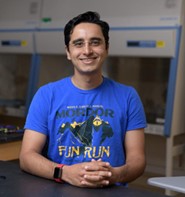This blog is from the National Institute of General Medical Sciences, one of the National Institutes of Health in the U.S. Department of Health and Human Services. By supporting basic biomedical research and training nationwide, NIGMS lays the foundation for advances in disease diagnosis, treatment, and prevention.
The NIGMS Feedback Loop is intended primarily for current NIGMS grantees, applicants and others in the scientific community who want the latest information on funding opportunities, meetings, resources, and other useful information. As announcements of interest become available, Institute staff will post them here.
October 29, 2024
Continue Reading
NIGMS Sandbox Provides Access to Data Science Learning Modules in the Cloud
October 9, 2024
Continue Reading
New Tribal Institutional Review Board Establishment and Enhancement (TIRBEE) Program and Upcoming Webinar
October 3, 2024
Continue Reading
New Tribal Undergraduate to Graduate Research Training and Leadership Experiences (TURTLE) Program and Upcoming Webinar
September 26, 2024
Continue Reading
Attend Our Early Career Investigator Lecture on October 7
September 25, 2024
Continue Reading
Wanted: Training and Workforce Development Program Director
September 19, 2024
Continue Reading
IDeA States Need Basic Science Too!
September 12, 2024
Continue Reading
Sharing NIGMS T32 Grants Training and Career Outcomes
September 11, 2024
Continue Reading
Wanted: Tribal Health Research Strategy Coordinator
September 10, 2024
Continue Reading

 Dr. Mercedes Rubio. Credit: NIGMS.
Dr. Mercedes Rubio. Credit: NIGMS.
 Saad Bhamla, Ph.D. Credit: Rob Felt, Georgia Tech.
Saad Bhamla, Ph.D. Credit: Rob Felt, Georgia Tech.